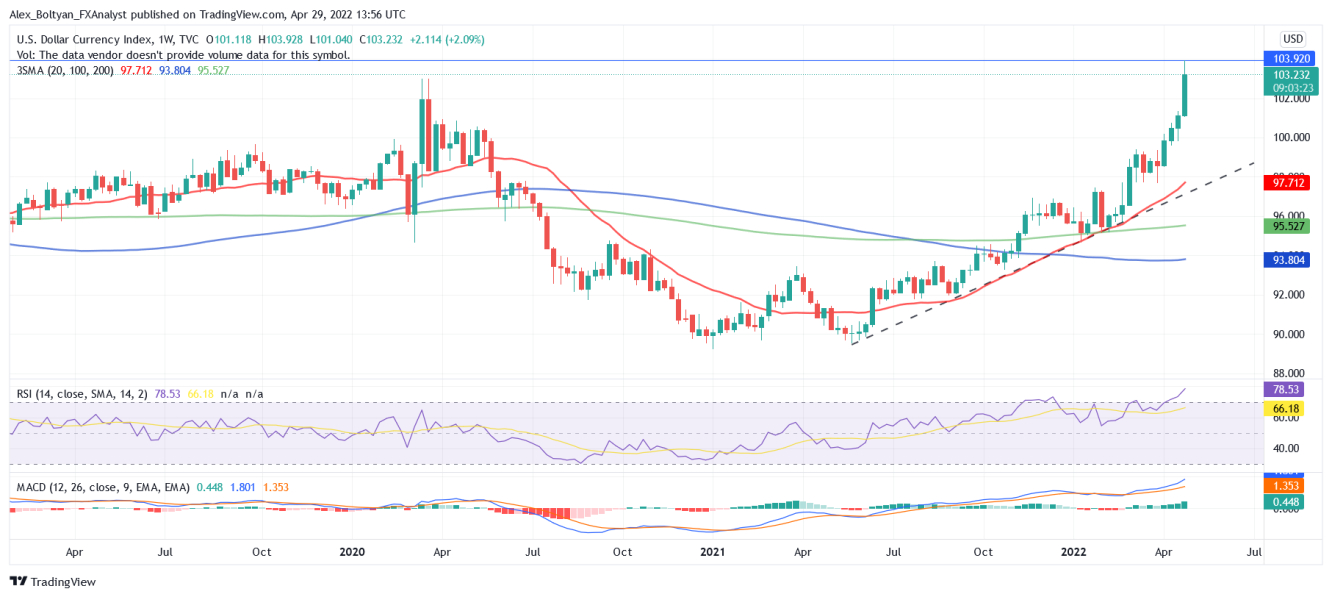The U.S. dollar is facing some profit-taking into the week (and the month) end, with the DXY pulling back after hitting a two-decade high just below 104.00.
After six consecutive days of gains, the DXY reached its highest level since December 2002 at 103.92 on Thursday, underpinned by risk aversion and expectations. The Federal Reserve will hike its main rate by 50 basis points when the FOMC meets next week.
On the data front, U.S. inflation tracked by the headline PCE rose 6.6% annualized in March and 5.2% in core prices, both readings pretty much in line with expectations. However, on Thursday, the U.S. GDP showed an annualized 1.4% contraction in the first quarter, well below the forecast of a 1.1% increase.
Robust economic performance is necessary for the Federal Reserve to maintain its monetary tightening path over the following months, so slowing growth might pose a challenge to the Fed plans. Still, this reading alone doesn’t change the May 4 decision expectations.
The DXY maintains a bullish outlook according to the weekly and daily charts from a technical perspective. Despite Friday’s correction, the index is on track to post its fourth weekly advance in a row and continues to trade well above its moving averages and an ascending trendline coming from May 2021 lows.
However, both charts show signs of bullish exhaustion, so a corrective move, or at least a consolidation phase, seems likely.On the downside, the initial support area is seen at the 101.00-100.85 range, where the weekly lows and the 20-day SMA converge. A break below this zone could see the price falling to the 100.00 psychological level. On the other hand, if the DXY breaks above its cycle peak of 103.92, the next resistances could be found at the 104.30 area, followed by 105.00.


